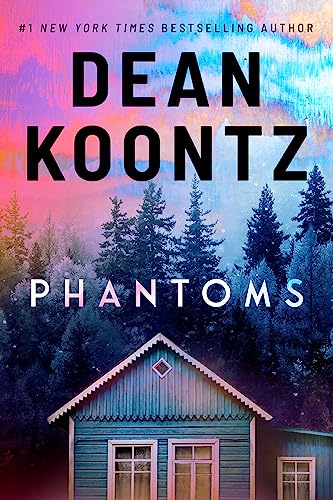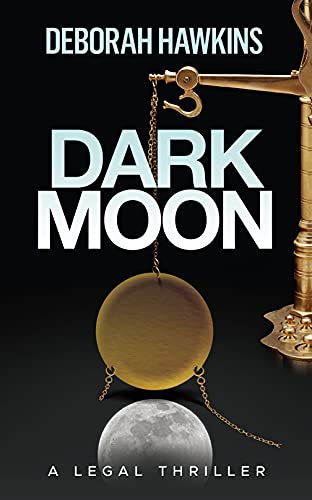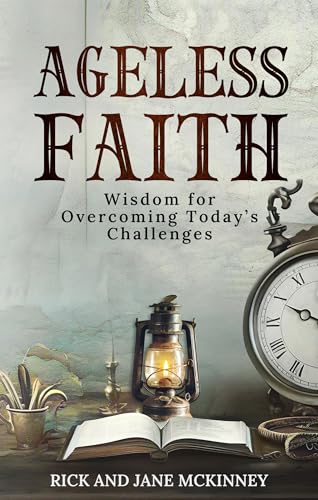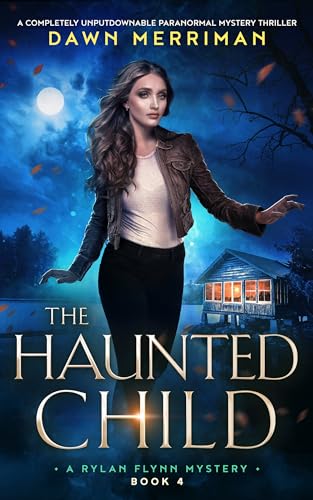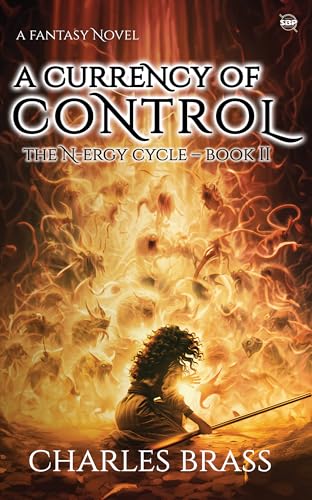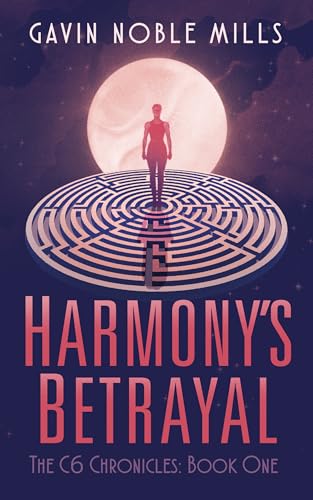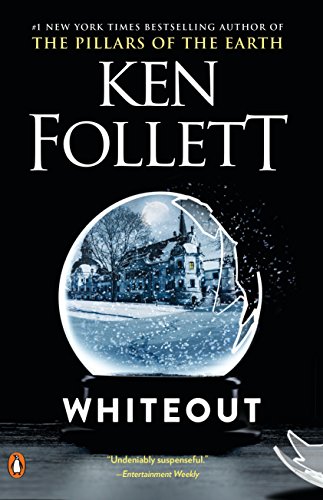22 straight rave reviews!
What if there was a proven path to success?
Challenge your thinking with this game-changing “fact-based” formula that
draws on thousands of studies and decades of university research to identify the five doors you must walk through to achieve success in your career, business, or personal life.
Life in Half a Second: How to Achieve Success Before it’s Too Late
by Matthew Michalewicz
What if there was a proven path to success? A path supported by science and research? A path that led to your goals and aspirations in less time, with less risk?
Would you take it?
Truthful and hard hitting, Life in Half a Second is the first “fact-based” formula for achieving success in life and business. Proven through thousands of studies and decades of research, it presents the five doors you must walk through to achieve success in your career, business, or personal life.
Gimmicks, mind tricks, fairy tales, and wishful thinking NOT INCLUDED. Just facts.
5-star praise for Life in Half a Second:
“…It puts a whole new perspective on everything you do in business and in life generally…If you are not kicking your major goals and you’re wondering why…Matthew Michaelwicz will show you how. “”…A MUST READ for those who want to be successful, however you may define it…Matthew’s book is outstanding in that it is evidence based and spells it out in very simple terms…”
an excerpt from
Life in Half a Second:
How to achieve success before it’s too late
by Matthew Michalewicz
Life is short and death is long.
Fritz Shoulder
The Countdown
Everyone knows that life is short – it’s the most over-preached truth on earth. But how short is it, exactly?
Planet Earth is four-and-a-half billion years old. The species you and I belong to, Homo sapiens, did not emerge until some 200,000 years ago. The oldest known fossils of modern humans are only 160,000 years old, discovered in Herto, Ethiopia. So out of the four-and-a-half billion years that this planet has been floating through the nothingness of space, we’ve been around some .0044% of that time. Put another way, if our planet was exactly one year old, then modern humans would have only been around for the last 23 minutes. Measured on the same scale, if our planet was a year old, then your entire life would amount to half a second.
In planet-time, that’s all you have: half a second.
We don’t appreciate this as kids. Time seems unlimited and goes by ever so slowly. We’re impatient to grow up, become adults, and enter the real world. We imagine all the freedom we’ll have, all the things we’ll get to do. But when adulthood finally arrives, we discover that we’ll be spending the vast majority of our “freedom” at work, paying bills, surviving, often in jobs we don’t like or don’t care about. Life is not how we imagined it and disillusionment sets in. We spend our half second doing everything except what we really want, dreaming of the future, of some distant, faraway day when life will be different, better, when we can finally do the things we want. But as we grow older, time begins moving faster and faster, and our long-awaited day never seems to come.
The tragedy of life isn’t that we only have half a second. The tragedy is that we waste it. In my travels across continents, countries, and cultures, first as a serial immigrant and later as a businessman, I met people from every walk of life imaginable. And throughout all these journeys in different parts of the globe, I became obsessed by a single question:
What would you do if you only had one year to live?
I’m not sure where the question came from, what prompted it or why, but it quickly became my favourite topic of conversation. And the more I asked the question – to people of varying backgrounds, skin colour, religion, and education – the more obsessed I became. Why? Because I always received the same answer. With only a year to live, most people would quit work, spend time with family, see the world, and do everything they always dreamed of doing before it’s too late. Their answers would be thick with emotion – not sadness or regret, but enthusiasm, eagerness. I felt they were about to set sail on some journey they often fantasized about but never actually took. With heat and fervour, eyes flashing, gleeing almost, they spoke of the many things they would do before death claimed them. And after the hundredth question and hundredth answer, I finally thought, Good God! Can we only live when we’re dying?
My impression of the world is that we spend life doing what we “have to” rather than what we “want to”. This comes across in many psychology and happiness studies, especially those related to work. Harvard studies show that worker happiness is at an all-time low, with 74% of employees wanting to find a new line of work. At heart, we would rather be doing something else. A number of prominent psychologists have proclaimed that every industrialized nation is experiencing an epidemic of depression, all the way from university students – where a study of 13,500 students found that 94% felt overwhelmed by everything they had to do and 45% were too depressed to function properly – to the general population, where only 28% of people out of a massive sample of 520,000 were classified as “emotionally well off ” as defined by positive and negative daily emotions, as well as a clinical diagnosis of depression. What can we make of all these studies and statistics?
One thing: we would rather be doing something else.
And that, right there, is the great tragedy of human existence. While this planet has been spinning and forming and cooling for billions of years, nature has been busy making you. From scraps of living matter – from bacteria, microbes, fermenting cells fighting for the right to exist, squirming and striving, growing in complexity through millions of generations, learning to breathe, mutating, spawning life on land and sea and air against the backdrop of centuries and millennia passing – the first genus Homo emerged. Somehow – only God knows how – he rose from the mess of biology and creation, covered in slime, ignorant and animalistic, and learned to stand, walk, stare at the sky, marvelling at the dark voids and cosmic dust above. And then he embarked upon the journey of all journeys, the hundred-thousand-generation epic of survival, of hunting and being hunted, overcoming frost, famine, struggling with tools made of wood and stone, discovering fire, migrating tens of thousands of miles to colonize the world, living by the law of fist and club, coping with violence, rape, conquest, disease without cures, starvation – enduring unthinkable pain and suffering so that the species could survive – living with the sole intent to mate, procreate, pass genes on to the next generation of survivors, over and over, thousands and thousands and thousands of times, until finally, at the very end of that endless ladder, one sperm out of 300 million attached itself to an egg, creating you, only you.
The point of it all, since the planet cooled and nature first put her hand to work, was to produce you – the finest specimen of an eternity of mutation and adaptation, surviving the evolutionary climb of all evolutionary climbs, through miracle and chance, beating all odds, winning a trillion-to-one-wager, winning the sperm race to be born, to be you. And today, sitting comfortably, reading this book, safe, warm, fed, the beneficiary of millions of years of unimaginable suffering and billions of years of incalculable good luck, there you are, with just half a second to enjoy the result, the marvel of existing, the miracle of being. And what do you do with that half second? Something other than what you want!
It’s the tragedy of all tragedies – it makes Shakespearean blank verse seem comic by comparison. Our lives are so cluttered doing what we “have to” that there’s no room for what we “want to”, even though we only have half a second to do it. Perhaps that’s why there’s so much unhappiness in the world! Perhaps that’s why Americans spend $57 billion on lottery tickets each year – not to win wealth, but to win freedom and finally do the things they want to.
But what are we waiting for? If we only had one year to live, our desire to start living – to use what’s left of our half second to the fullest – would become unstoppable and we would finally, finally, take action. But is that what it takes? Must we be confronted with death to finally do the things we want? Is that what we’re waiting for? Sadly, it seems so. Death always seems a long way off, a concept almost, as remote and abstract as the dark side of the moon. We don’t appreciate our mortality or fully comprehend how little time we have, so we defer our desires for another day. It’s not until death becomes more tangible, inevitable, that we realize our time is measured and we spring into action.
We’re relaxed and laid back about the time we have left because we measure our age in “years lived”. We know that 50 is older than 40, and 40 is older than 30, but so what? What does that really tell us? Not much. It’s like knowing how many litres a car has used without knowing how many litresare left. The most important information is missing. So what would happen if we measured our age in “days left” rather than “years lived”? I bet we wouldn’t be as relaxed and laid back. I bet that death would become less abstract. Let’s try it.
The average life expectancy of the global population in 2011 is 70 years, ranging from 80+ years in countries such as Japan, Australia, and France, to less than 60 years in South Africa, Laos, and Kenya. Let’s assume you live in one of the sixteen countries where life expectancy is more than 80 years, or that you’ll beat the odds and live to be 80. In either case, subtract your current age from 80 and multiply the result by 365. This is the number of “days left” you have – assuming all goes well and you don’t find yourself on the wrong end of “average”. I’m currently 37 years old, so 80 – 37 = 43, and 43 3 365 =15,695 days. So that’s it. That’s all I have left: 15,695 days. And there’s something more meaningful about “15,695 days left” than “37 years old”. I feel a sense of urgency, haste. There’s a countdown on my life.
Perhaps that’s why people accuse me of being in a hurry. I don’t need to be. But I am. Why? Because it took a billion years for me to get here, and now that I’m here, I’ve only got half a second to make the most of it. So yes, I admit it, I’m in a hurry! I’m in a hurry to live. The world is right there, outside my window, in the blueness of the sky, over the horizon, begging to be discovered, touched, appreciated. It’s all there waiting for me – so what am I waiting for?
“I’m here to live, man, live!” I remind myself each morning.I want to lie in the grass, underneath the burning sun and swirling clouds, wind blowing, seasons changing, with the raw earth under my fingernails. From the largeness of the cosmos to the smallness of my little toe, I love life. And knowing that everything is ephemeral, fleeting, here one moment and gone the next, I’m not saving anything for later. There might not be a “later”. Like the great motivators that preach from stadiums and pulpits, I want to live full and die empty. I’ve skydived, explored the great pyramids, sat next to the Moai on Easter Island, bungee jumped, owned Ferraris, driven at 300 km/h, rock climbed above Machu Picchu, sailed the Mediterranean, scuba dived on wrecks in the Caribbean, photographed the Nazca Lines from a lightplane, touched the giant tortoises on the Galapagos Islands, met the Pope, worked with Lech Walesa, and dined with Arnold Schwarzenegger – I’m not waiting for anything. Each morning I tell my wife and kids how much I love them, as if I’ll never see them again – each year I’m living like it’s my last, bucket list and all.
Do you have a bucket list? No? Then make one and do it now, while you still can, while there’s still life and strength in your veins. If you only had one year to live, you’d do it now. Nothing would stop you. No amount of commitments, obligations, or responsibilities. But because you measure time in “years lived” rather than “days left”, the future seems unlimited, so you defer and wait. You do everything you “have to” and very little of what you “want to”. But what are you waiting for? When you’re old and frail? When your desire has evaporated? When your loved ones are gone?
The tragedy of life is waiting and deferring. I see people doing it every day, everywhere I go, in airports, restaurants, factories, offices, classrooms – waiting and deferring. I see it on their faces, in their eyes. They believe they’ve got all the time in the world, so they wait and defer, putting off the things they “want to” for another time, for “later”. And when later comes, they often feel it’s too late – that they’ve waited and deferred for too long. But why continue to wait and defer because you’re older today than you were yesterday? What sense does that make? You won’t have any more “days left” tomorrow than you do today. What’s left is what’s left, and you must make the most of it.
Harlan David Sanders certainly made the most of his “days left”. After a colourful life that included farming, piloting steamboats, and selling insurance, he founded Kentucky Fried Chicken at the age of 65, immortalizing his eleven herbs and spices and becoming a multi-millionaire in the process. Ray Kroc did the same, beginning his legendary transformation of McDonald’s into a global colossus while he was in his 50s. Frank Lloyd Wright began designing the iconic Guggenheim Museum at the age of 76, and Francisco Goya – the last of the old masters – created his best and most powerful work during his late 70s.
There are thousands of similar stories, as evidenced by entrepreneurial statistics. Consider that the “over 55” category is responsible for starting 28% of all new businesses in the United States each year.10 The truth is that it’s only “too late” when you’re dead. That’s the only time when it’s truly “too late”. Any time before that, the dice are still in play, the dealer still has cards to deal, you still have time.
It’s not over till it’s over.
But you don’t have any time to waste, nobody does. If you want more from life than the daily grind of work, routine, retirement, and death, you’ve only got half a second to do it. To achieve success and turn your dreams into reality, the only time you’ll ever have is now. And that’s where this book comes in. Based on scientific research and thousands of real-world studies, Life in Half a Second is your master key to success. Free from gimmicks, mind tricks, fairy tales, and wishing upon stars, it will help you achieve success before it’s too late, before you’re dead.
I have organized Life in Half a Second into five “doors of success”, which represent the five scientifically proven factors that drive success across every discipline – from athletics and show business, through to entrepreneurship and corporate careers. Each door explains a specific factor, why it works, and most importantly, how you can apply it in your business, career, or personal life. After reading Life in Half a Second you’ll realise that every motivational book ever written, every gravity-defying success story ever uttered whether it’s climbing Mount Everest, becoming a billionaire, setting a world record, or making a scientific breakthrough – is based on these five doors. There is nothing more. If you want something in life, these five doors are the only way to get it. And whether you are my son or a stranger, I will give you the same advice: read this book, do what it says. Success will follow.
I don’t know who you are, where you live, or anything about your values or background. But I do know one thing: you’ve only got half a second. And you might be content to use that half second waiting and deferring, waiting and deferring – never quite knowing why or what for. But not me. I want to close my eyes knowing I made the most of life – knowing I never waited and I never deferred. If I had more time, I would have done more. But with the time I had, I did all I could. That’s why I’m in a hurry; that’s why I don’t have a moment to lose. There’s a countdown on my life.
And guess what … there’s a countdown on yours as well.
… Continued…
Download the entire book now to continue reading on Kindle!
4.9 stars – 22 reviews!
(reduced from $7.99 for
limited time only)

